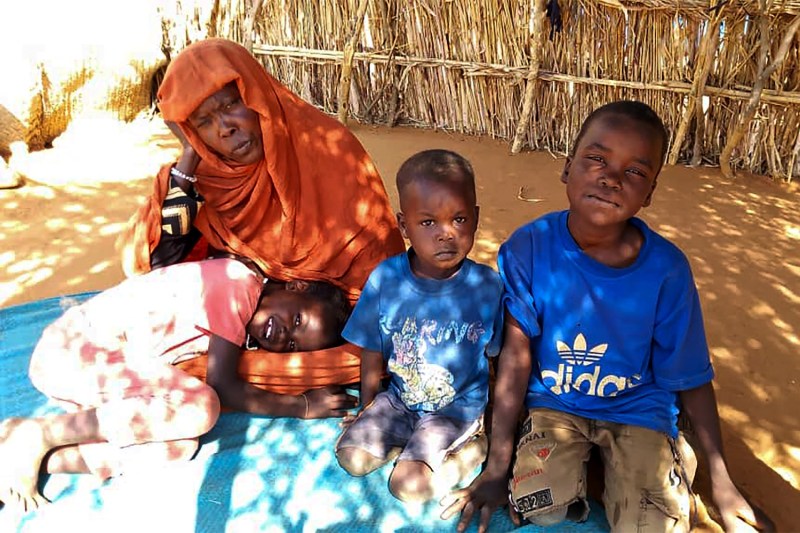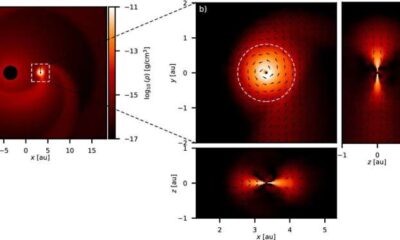Top Stories
UAE’s Role in Sudan Conflict Exposed: Urgent Appeals for Action

UPDATE: The devastating conflict in Sudan escalates as new reports reveal the United Arab Emirates (UAE) is obstructing international efforts to end the humanitarian crisis affecting nearly 400,000 civilians in El Fasher. For over 29 months, the brutal war between the Sudanese Armed Forces (SAF) and the Rapid Support Forces (RSF) has created what the United Nations calls the world’s worst humanitarian crisis. The stakes could not be higher.
NEW DEVELOPMENTS: Recent investigations indicate the UAE is not only blocking peace initiatives but is also allegedly supplying weapons to the RSF. This week, at the U.N. General Assembly, the UAE was the sole member of the Quad—a conflict mediation group—to refuse to agree on measures to condemn RSF attacks or end the siege of El Fasher, where aid trucks are regularly targeted. The UAE denies these allegations but evidence suggests a significant influx of arms to the RSF has coincided with an uptick in violence.
As the RSF tightens its grip on El Fasher, the consequences are catastrophic. Civilians face starvation and potential massacre, with recent reports documenting the RSF’s explicit intent to target non-Arab communities, particularly the Zaghawa and Masalit tribes. The Raoul Wallenberg Centre for Human Rights (RWCHR) has previously concluded that the RSF is committing genocide against these communities.
HUMAN IMPACT: Survivors recount harrowing tales of violence, with one victim stating, “If you were Masalit, we decided that we don’t want to leave any alive, not even the children.” The scale of potential casualties is terrifying, with estimates suggesting up to 15,000 deaths in West Darfur alone due to RSF violence. Families are living in fear, with the threat of death by starvation looming over them.
The international community has been largely inactive, with the U.N. Security Council issuing only two resolutions calling for a ceasefire, but lacking meaningful enforcement. The UAE’s involvement is particularly concerning, as it is reportedly the RSF’s supply line for arms, using cargo flights to transport heavy weaponry.
CONTEXT: The UAE’s interest in Sudan goes beyond mere conflict involvement; it seeks to control the nation’s valuable resources, including gold and agricultural outputs. Despite claims of combating political Islam, the UAE has historical ties to the RSF, having supported its leader, Mohamed Hamdan Dagalo, known as Hemeti. This relationship raises critical questions about the UAE’s true intentions in the region.
WHAT’S NEXT: As the RSF approaches El Fasher, the call for the UAE to withdraw its support is urgent. Analysts argue that without UAE backing, the RSF would struggle to maintain its siege and commit further atrocities. The RWCHR is set to release a follow-up inquiry detailing the war’s disproportionate impact on children, highlighting those responsible for ongoing crimes against humanity.
The world is watching as pressure mounts for the UAE to act. If genuine humanitarian support is a priority, the UAE must call for the RSF to cease its attacks and allow aid to reach the besieged civilians of El Fasher. As the situation develops, the urgency for international intervention has never been more critical.
Keep following our coverage for the latest updates on this unfolding crisis.
-

 Science2 months ago
Science2 months agoUniversity of Hawaiʻi at Mānoa Joins $25.6M AI Initiative for Disaster Monitoring
-

 Health2 months ago
Health2 months agoNew Gel Offers Hope for Regrowing Tooth Enamel in Dentistry
-

 Science1 month ago
Science1 month agoALMA Discovers Companion Orbiting Red Giant Star π 1 Gruis
-

 Lifestyle1 month ago
Lifestyle1 month agoPark Jung Min’s Endearing Moment with Hwasa Steals Show at Awards
-

 Science2 months ago
Science2 months agoIROS 2025 to Showcase Cutting-Edge Robotics Innovations in China
-

 Lifestyle2 months ago
Lifestyle2 months agoStone Island’s Logo Worn by Extremists Sparks Brand Dilemma
-

 Lifestyle2 months ago
Lifestyle2 months agoSampson County Celebrates Susie Faison’s 100th Birthday Milestone
-

 Lifestyle2 months ago
Lifestyle2 months agoMary Morgan Jackson Crowned Little Miss National Peanut Festival 2025
-

 Health2 months ago
Health2 months agoStartup Liberate Bio Secures $31 Million for Next-Gen Therapies
-

 Health2 months ago
Health2 months agoTop Hyaluronic Acid Serums for Radiant Skin in 2025
-

 Politics2 months ago
Politics2 months agoJudge Considers Dismissal of Chelsea Housing Case Citing AI Flaws
-

 Science2 months ago
Science2 months agoArizona State University Transforms Programming Education Approach









